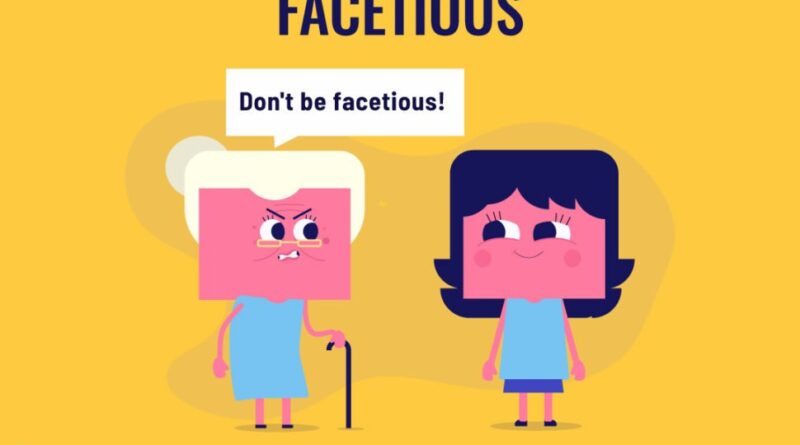Facetious Response to How’d You do That?
Have you ever performed a remarkable feat or accomplished a seemingly impossible task, only to be met with the facetious response, “How’d you do that?” This quip is a common way for people to express their amazement while simultaneously belittling your accomplishment. But don’t let it get you down; instead, seize the opportunity to respond with Humor and grace. This comprehensive guide will explore the power of facetious responses, provide examples, delve into when and how to use them effectively, and even study the psychology behind Humor in social interactions.
The Power of Facetious Responses
Before crafting the perfect facetious response, let’s understand why Humor is such a potent tool in social interactions. Humor can:
1. Break the Ice
A well-placed joke can ease tension and make you more approachable. When someone asks you, “How’d you do that?” responding with Humor can be a great way to break the ice and initiate a pleasant conversation.
2. Defuse Tense Situations
In confrontational moments, Humor can disarm aggressors and defuse the tension. When faced with hostility or sarcasm, responding with a witty, facetious remark can shift the dynamics of the interaction.
3. Inject Fun
Adding Humor to a conversation can make it more enjoyable for everyone involved. Instead of responding with a boring explanation, a clever, facetious response can keep the mood light and engaging.
Examples of Facetious Responses
Facetious responses are intended to be humorous or sarcastic rather than serious. They are creative ways to respond to questions or comments that might otherwise be mundane. Here are some examples:
1. “Sure, right after I finish climbing Mount Everest.”
Use this response when someone asks you to do something you don’t want to do. It adds Humor to the situation while making your reluctance apparent.
2. “Gee, I don’t know, maybe you should consult a Magic 8-Ball for the answer.”
Employ this when someone asks you a question you find silly or obvious. It playfully suggests that their question is so fundamental a toy could answer it.
3. “Stop it, you’re making me blush…with embarrassment.”
Perfect for responding to over-the-top compliments. This response humorously downplays the praise while acknowledging it.
4. “It’s like trying to explain the color blue to a blind person.”
Use this when someone asks you to explain something you find apparent. It humorously illustrates the challenge of explaining the obvious.
5. “I could tell you, but then I’d have to kill you.”
For those questions you’d instead not answer, this response adds a touch of intrigue and playful secrecy.
When to Use Facetious Responses
Facetious responses should be used thoughtfully and sparingly. While they can be humorous and light-hearted, they are unsuitable for all situations. Here’s when you might consider using a facetious response:
1. Defusing Tense Situations
A well-timed facetious response can help defuse a tense situation and put the other person in their place when they are rude or aggressive.
2. Lightening the Mood
If someone takes themselves too seriously, a facetious response can help bring some fun to the conversation and break the seriousness.
3. Injecting Humor
Sometimes, a facetious response is an excellent way to make a joke and inject Humor into a conversation, making it more enjoyable for all parties involved.
However, always use good judgment when deciding whether to use a facetious response. Consider the context, tone, and your relationship with the other person. Be mindful of potential consequences.
The Classic Response
The classic response to “How’d you do that?” is, “I can’t tell you. It’s a secret.” This response playfully acknowledges the person’s amazement while maintaining the focus on your accomplishment. It also adds an element of mystery and excitement to your persona.
The Self-Deprecating Response
Another way to respond to this question is with a self-deprecating joke. For example, if someone asked how you managed to finish a marathon, you could say, “Oh, it was easy. I just bribed the other runners to let me win.” This response shows that you don’t take yourself too seriously, allowing the other person to feel like they’re in on the joke.
The Outlandish Response
For those looking to take a more creative approach, consider going for something completely outlandish. For instance, if someone asked how you got a promotion at work, you could say, “I hacked into the company’s computer system and changed my job title.” While this response is a joke, it can be a fun way to add some levity to the conversation.
The Psychology of Humor in Social Interactions
Understanding the psychology of Humor can help you use facetious responses effectively in social interactions. Humor:
– Builds Rapport
Using Humor can help build rapport with others, showing you are approachable and relatable.
– Relieves Stress
Humor can act as a stress reliever in tense situations, making the interaction more comfortable for everyone involved.
– Enhances Memory
People tend to remember humorous interactions better than serious ones, making you more memorable.
– Boosts Creativity
Humor stimulates creative thinking and can lead to more innovative problem-solving.
Conclusion
The next time someone asks you, “How’d you do that?” don’t let it dampen your spirits. Instead, choose from the array of witty retorts discussed here. Whether you opt for the classic response, a self-deprecating joke, or something entirely outlandish, keeping the conversation light and enjoyable is paramount.
You now have a deeper understanding of the psychology behind Humor in social interactions and when and how to use facetious responses effectively. Your flippant answer might inspire others to embrace Humor and uniqueness in their endeavors. So, conquer new challenges, and when someone inevitably asks you how you did it, be prepared with a clever comeback that leaves them smiling. Embrace the power of Humor, and you’ll navigate social interactions with confidence and grace.
Frequently Asked Questions (FAQ)
1. Is it appropriate to use facetious responses in professional settings?
While facetious responses can effectively lighten the mood, they are generally best avoided in formal or professional settings, where a more serious tone is expected.
2. Can facetious responses be offensive?
Yes, they can be if they touch on sensitive topics or cross boundaries. Always aim for Humor that’s light-hearted and harmless.
3. Are there cultural differences in understanding facetious responses?
Yes, Humor varies across cultures. What’s funny to one person may not be to another, so be aware of cultural sensitivities.
4. When should I avoid using facetious responses?
Avoid facetious responses when someone genuinely seeks information, during serious discussions, or when it may hurt or offend someone.
5. Can facetious responses be used with strangers?
Be cautious when responding facetiously to strangers, as they may not understand your sense of Humor. It’s safer with friends and acquaintances who are familiar with your style.
6. How can I come up with witty, facetious responses on the spot?
Practice is key. The more you experiment with Humor, the better you’ll become at crafting quick, witty responses.
7. What if someone doesn’t appreciate my facetious response?
Not everyone has the same sense of Humor. If someone doesn’t appreciate it, don’t push it further and switch to a more straightforward answer.
8. Are there any risks associated with facetious responses?
The main risk is misinterpretation. Ensure your response is humorous to avoid any confusion.
The Psychology of Humor in Social Interactions
Understanding the psychology of Humor can help you use facetious responses effectively in social interactions. Humor:
– Builds Rapport
Using Humor can help build rapport with others, showing you are approachable and relatable.
– Relieves Stress
Humor can act as a stress reliever in tense situations, making the interaction more comfortable for everyone involved.
– Enhances Memory
People tend to remember humorous interactions better than serious ones, making you more memorable.
– Boosts Creativity
Humor stimulates creative thinking and can lead to more innovative problem-solving.




